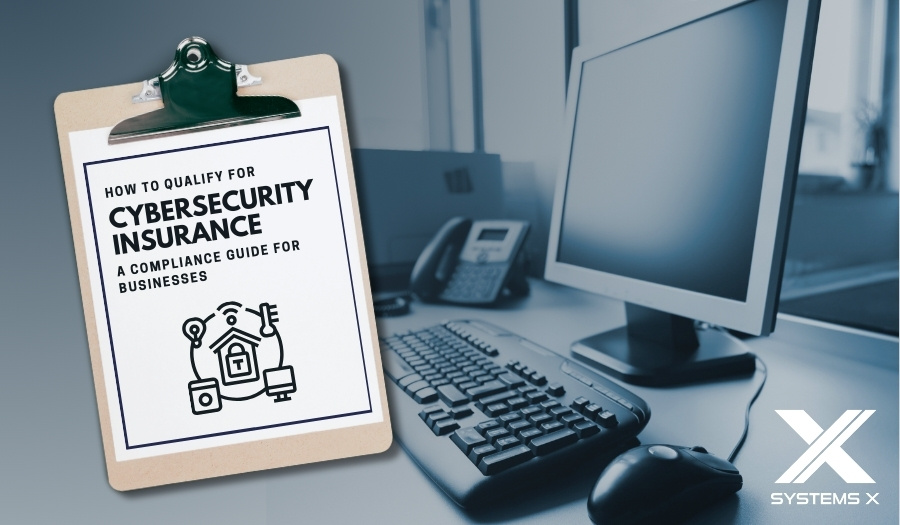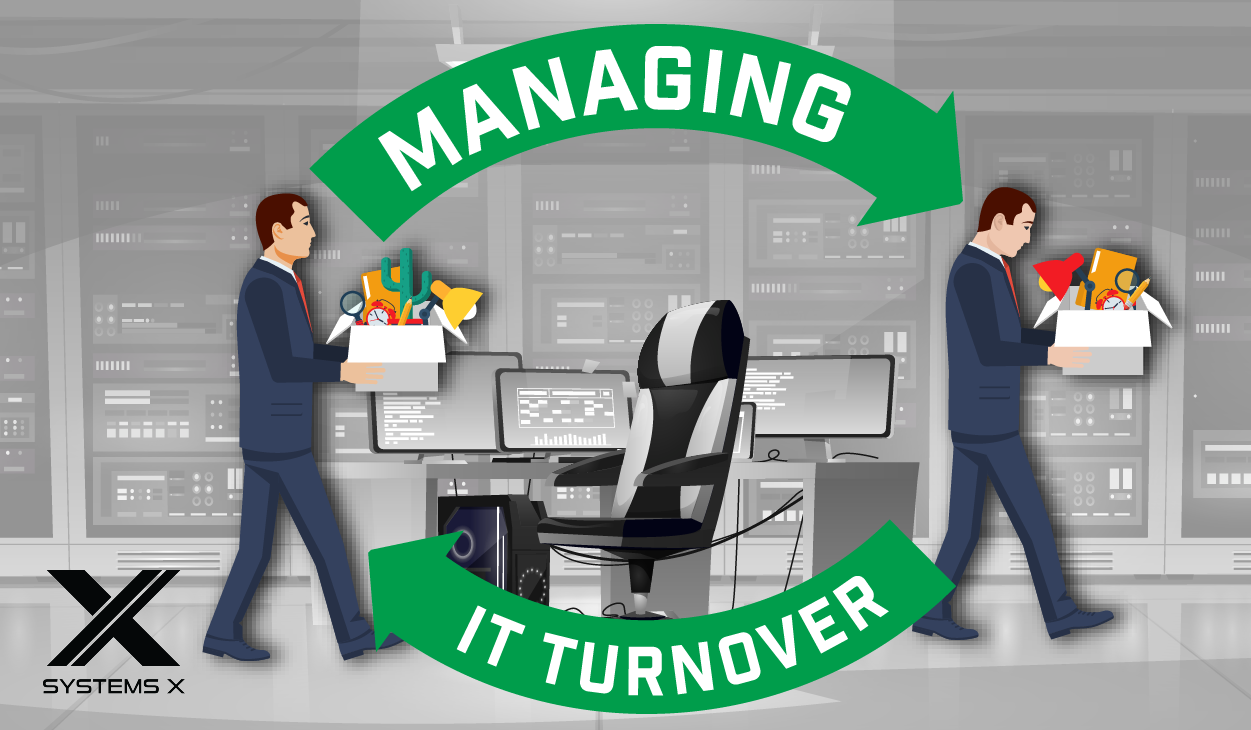Qualify for Cybersecurity Insurance: A Compliance Guide for Businesses
Cybersecurity insurance has become a crucial safeguard for businesses of all sizes. However, meeting specific compliance standards is critical in...
6 min read
 Mike Brattain
:
Apr 28, 2023 2:52:47 PM
Mike Brattain
:
Apr 28, 2023 2:52:47 PM

Unfortunately, many businesses still view cybersecurity as an optional expense rather than a critical investment. But with cybercriminals always on the lookout for new vulnerabilities, organizations must ensure their cybersecurity tools and practices are up-to-date with the latest technology. By doing so, businesses can protect themselves from potential breaches and gain a competitive edge by delivering top-quality products and services that exceed customers' expectations.
In this article, we'll explore why cybersecurity should be a top priority for businesses of all sizes, and how investing in it can set your business apart from the competition.
Incorporating modern cybersecurity measures into your company's budget is no longer a luxury, but a necessity. It's not just about protecting sensitive information; it's about safeguarding your business's reputation and ensuring customer trust. A single data breach can not only result in financial losses and legal issues but also harm a company's reputation, leading to lost customers and revenue.
By investing in cybersecurity, businesses can minimize the risk of breaches and demonstrate to their customers that they take data protection seriously. This can help to build trust, loyalty, and brand reputation, ultimately giving them a competitive edge in the market. Additionally, companies with a robust cybersecurity posture may attract new customers who are looking for businesses that prioritize the security of their information. In short, incorporating modern cybersecurity measures into your company's budget is not just an expense, but an investment in your company's future.
Cybersecurity helps achieve the following strategic goals:
Gaining customer trust is crucial for businesses to attract customers and increase sales. One effective way to achieve this is by incorporating cybersecurity into daily operations to prevent data breaches and ensure reliable service. It's important to also communicate these security efforts in marketing campaigns to reassure security-sensitive customers. According to Lance Hayden, MD of Berkeley Research Group, companies that include cybersecurity as part of their strategic assets portfolio can gain a competitive advantage.
For industries such as manufacturing, where intellectual property and trade secrets are the foundation of their competitive edge, the stakes are even higher. If these critical assets were to fall into the wrong hands, it could be disastrous for the company.
By prioritizing cybersecurity in strategic decision-making, companies can safeguard their valuable assets and maintain their competitive edge. A robust cybersecurity strategy can help ensure that unauthorized individuals cannot access or steal sensitive information, mitigating the risk of data breaches and protecting the company's lifeline.
Without proper cybersecurity measures in place, competitors can easily steal your new product features, leaving your company at a disadvantage in the crowded market. By integrating cybersecurity into your product development strategy, you can encourage innovation, research, and development while also protecting your company's confidential information from third-party leaks.
In addition, implementing strong cybersecurity measures can enable you to offer the security features that customers desire, as demonstrated by companies like Apple who prioritize data security to attract and retain modern buyers. By investing in cybersecurity, your business can gain a competitive edge and ensure long-term success.
As businesses increasingly rely on vendor services for their core operations, the importance of vendor cybersecurity has also risen. Hackers and cybercriminals often exploit vulnerabilities in third-party systems to access a company's confidential information. According to a report by Opus and Ponemon in 2018, nearly 60% of organizations experienced data breaches that were linked to their vendors.
As a result, more and more organizations are now prioritizing vendor cybersecurity when selecting their service providers. To ensure the security of their systems and data, companies conduct thorough due diligence on a vendor's cybersecurity measures before bringing them on board. Third-party providers that possess the following security measures and resources are preferred:
A security contact is an important point of contact for any vendor providing services to a company. It is the person or team responsible for overseeing the security of the vendor's product or service, and for responding to any security incidents or vulnerabilities that may arise.
Having a dedicated security contact is a sign that the vendor takes security seriously and has made an investment in the necessary resources to protect critical information. This includes implementing security measures such as encryption, access controls, and regular security audits. By working with vendors who prioritize security and have a dedicated security contact, companies can feel more confident in their ability to protect their own sensitive information and that of their customers.
Industry certification is a crucial aspect of cybersecurity as it shows that a third party has invested time and resources in complying with industry-standard cybersecurity protocols and practices. This certification is typically awarded by independent, accredited organizations that assess the company's cybersecurity posture against a set of standards and criteria.
For example, if a company is certified by the National Institute of Standards and Technology (NIST), it means that they have implemented NIST's guidelines and best practices, which are widely accepted as the gold standard in cybersecurity. Such alignment with relevant bodies not only demonstrates a company's commitment to cybersecurity but also provides assurance to clients and partners that they are working with a reputable and reliable organization.
Companies want to work with vendors who have implemented intelligence programs that can adapt to the ever-changing threat landscape. This program should include regular security audits, penetration testing, and vulnerability assessments, among other proactive measures.
By investing in a robust intelligence program, vendors demonstrate their commitment to maintaining a secure environment for their clients and reducing the likelihood of successful cyber attacks.
An incident response plan is a crucial component of any cybersecurity program. It outlines the steps that a company takes to detect, contain, and recover from a security breach or incident.
In the case of third-party vendors, companies must ensure that their vendors have an incident response plan in place to deal with any security incidents that may occur. This includes disclosing details of any incidents to the company in a timely manner and setting deadlines for resolution. Failure to meet these deadlines can result in penalties and non-compliance issues.
To meet regulatory requirements, security-focused companies need to adopt a comprehensive cybersecurity strategy that goes beyond just technical measures.
This approach should include various essential elements:
To align cybersecurity with the organization's goals, vision, and mission, the cybersecurity team must take the time to understand the company's strategy. By doing so, companies can use security standards to support their objectives and identify potential market opportunities.
Establish clear procedures that reinforce cybersecurity governance. Assign security management tasks to a dedicated person or team that will employ project management strategies. They'll also spearhead ongoing company-wide security coordination and changes.
A top-to-down security culture is crucial for a company on the road to compliance. So it's essential to gain top executives' buy-in to cybersecurity implementations. Don't forget to create awareness and train every employee about data security to ensure everyone is on the same page.
Today's cybersecurity measures and innovations have evolved beyond a compliance-focused approach. They now focus on pinpointing real-time risks and proactively safeguarding an organization. Modern technologies (such as AI and cloud) help keep the ever-evolving and new threats at bay in the following ways:
Hackers have found ways to compromise one-time passwords sent to email inboxes, putting businesses at risk of data breaches. To address this challenge, modern innovations have been developed to provide faster and safer access to systems and applications. Time-bound and contextual access is now possible, which ensures that only authorized personnel can access specific systems at specific times.
Multi-factor authentication that doesn't use passwords has also been introduced, which eliminates the need for users to reset their forgotten passwords often. This not only saves time but also reduces the risk of unauthorized access to sensitive information. With these innovations, unsafe email delivery is now a thing of the past, giving companies peace of mind that their systems and data are protected.
The prolonged auditing, testing, and remediating process are outdated in today's cybersecurity world. Instead, you need to embrace automated and more agile "discover to fix" tactics.
Organizations should go beyond being compliant and focus on identifying and managing risks to improve business operations. Sure, staying compliant helps you be on the safe side of regulatory laws and ensure your organization's security hygiene is top-notch. But real threats are contextual and dynamic. That means you need to calibrate security measures to address risks as they evolve continuously.
Customers desire secure and sustainable offerings. Thus, innovations and new business models are crucial for any company that aims to meet these needs and gain significant market shares.
Modern innovations put cybersecurity at the center of customer experience and business continuity. Security now occupies the earlier stages of the development cycle to catch threats as early as possible before they become accumulate to form a mountain.
Creating a culture of cybersecurity is essential as the workforce is often the weakest link in a company's defense. Even the most advanced IT measures may fail if a single employee becomes compromised. Therefore, it is crucial to integrate security into the overall company culture. This can be achieved by training employees to understand that everyone has a role in staying vigilant, identifying potential threats, and reporting them promptly.
Gone are the days of one-size-fits-all solutions. Instead, companies that prioritize security employ risk-focused strategies and adaptable tools that put security into context. However, it can be challenging to balance daily operations while ensuring comprehensive security coverage.
This is where Systems X can help. Our team of experts can evaluate your current cybersecurity measures, identify new security goals, and provide tailored solutions for your business. We also offer training, vulnerability scanning, incident response, and network compliance services to keep your company on track.
It's crucial to prioritize cybersecurity as part of your overall strategy. If you're searching for the right cybersecurity partner, contact us today for a comprehensive solution.

Cybersecurity insurance has become a crucial safeguard for businesses of all sizes. However, meeting specific compliance standards is critical in...

Manufacturers in Michigan are facing a cyber threat they may not have considered. Large companies may begin to feel quite secure about cybersecurity....

IT administrators manage everything from network infrastructure to cybersecurity, ensuring that your company’s technological framework is robust and...